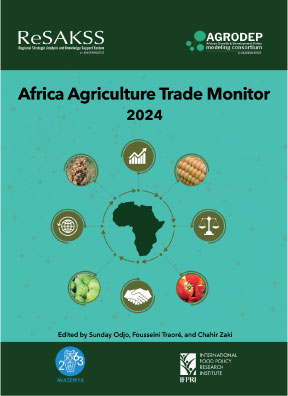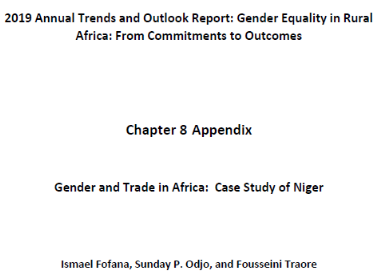The global pandemic has challenged Africa to find a clear pathway for food security. If Africa is to succeed, the interplay between food, markets, trade and agriculture will be critical.
This interplay goes to the heart of the 2020 Africa Agriculture Trade Monitor (AATM), launched today at AGRF’s Great Debate. During the session, leading minds on agri-food policy were invited to share their thoughts on the report in the context of COVID-19. Delivering the opening keynote, Dr Ousmane Badiane, Executive Chairperson of AKADEMIYA 2063, introduced the report’s key findings.
In the last 10-15 years, said Dr Badiane, Africa’s growth and recovery following “the lost decades” of the late C20th have been reflected in its performance in global export markets. The value of African exports has gone up, and Africa is starting to diversify its direction, exporting to emerging markets and faster-growing economies. Crucially, Africa is also now exporting value-added products and expanding into the processed export segment. But clear areas of weakness remain. Africa is still a net importer. It is also punching below its weight in global trade. “Africa accounts for 10% of global agriculture output,” said Dr Badiane, “but only 5% of global agriculture trade”.
The report shows that Africa’s competitiveness in global markets is affected by a range of determinants. Some of these are external, but some are internal, such as regulatory and administrative barriers within African countries – which of course also hamper intra-African commerce.
Africa-to-Africa trade represents just 16% of total African trade, while Africa’s trade with China and Europe together accounts for 54%. The AATM identifies regional blockages within Africa – along with non-tariff barriers – as the main obstacle in this area. Like many observers, Dr. Badiane is hoping the African Continental Free Trade Area (CFTA) will “unlock the potential to exchange across regions” and boost intercontinental trade.
Following Dr Badiane’s introduction, panelists gave their personal responses to these and other key findings. First up, Hon. James Duddridge MP, UK Minister for Africa, warned of the secondary impact of COVID-19 on health and food security, underscoring the need to minimize the impact on supply chains, livelihoods, and incomes – particularly those of women and youth.
Some African governments, remarked Duddridge, “have increased export bans… taxes and border closures in response to COVID-19”. These measures he described as “bad moves, restricting the flow of food”. Because above all, he asserted, what Africa needs is a predictable policy environment to smooth intra-Africa trade movement.
Next, Dr Vera Songwe, Executive Secretary at UNECA, addressed the problem of inefficiency and lack of harmonization. “Africa has 76 borders,” she said. “It costs US $185 a day when a truck does not cross a border. If you have a hundred trucks at a border, very easily we’re losing US $1m a day.” The cost of inefficiency in the African food production system is staggering, said Dr Songwe, with food system wastage linked to production, storage, transportation, processing, distribution and consumption leading to US $800bn in lost revenue. “This is a number we can clearly improve on.”
In order to achieve prosperity through agriculture, Dr Songwe continued, integration is critical. South Africa, for example, imports US $88.1bn of agricultural commodities, including rice from China, rather than from, say, Senegal. Likewise, two thirds of Angola’s wheat comes from Portugal, Brazil and Ukraine, whereas it could come from Ethiopia. But to trade within Africa is 63% more expensive.
Professor Benedict Oramah, President of Afrexim Bank, continued this narrative. Intraregional trade, he said, is cost-constrained by a multiplicity of currencies – 42 in total, “which is a reflection of the divisions we have”. To address this issue, a pan-African payment and settlement system has been designed to enable Africans to pay for intraregional trade in local currencies. This system should help to lower the cost of transacting on the continent. It is also hoped the removal of non-tariff barriers through the CFTA will further reduce economic impediments to intra-Africa trade.
Overall, panelists agreed that COVID-19 has taught Africa “hard and bitter lessons” about overreliance on global supply chains and demonstrated the importance of continental interrelation. Commentators from Cornell University, Yara and CFTA were united in view that the continent needs to fight “the beast” of COVID-19 “together as one Africa”, not as separate countries behind closed borders. If such unity is maintained, not only through the pandemic but beyond, the chances of finding that clear pathway for food security look considerably brighter.
Read the original blog here

